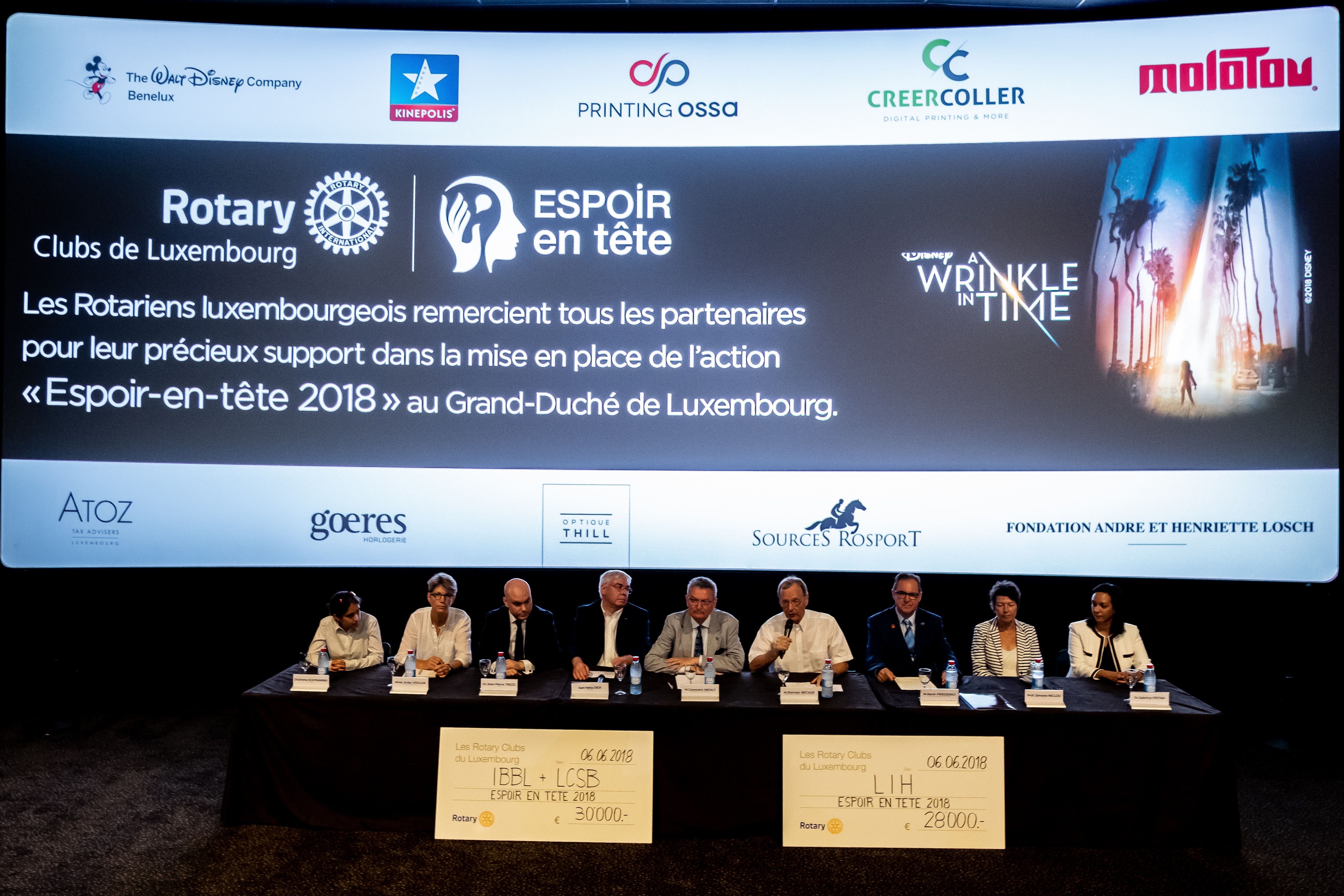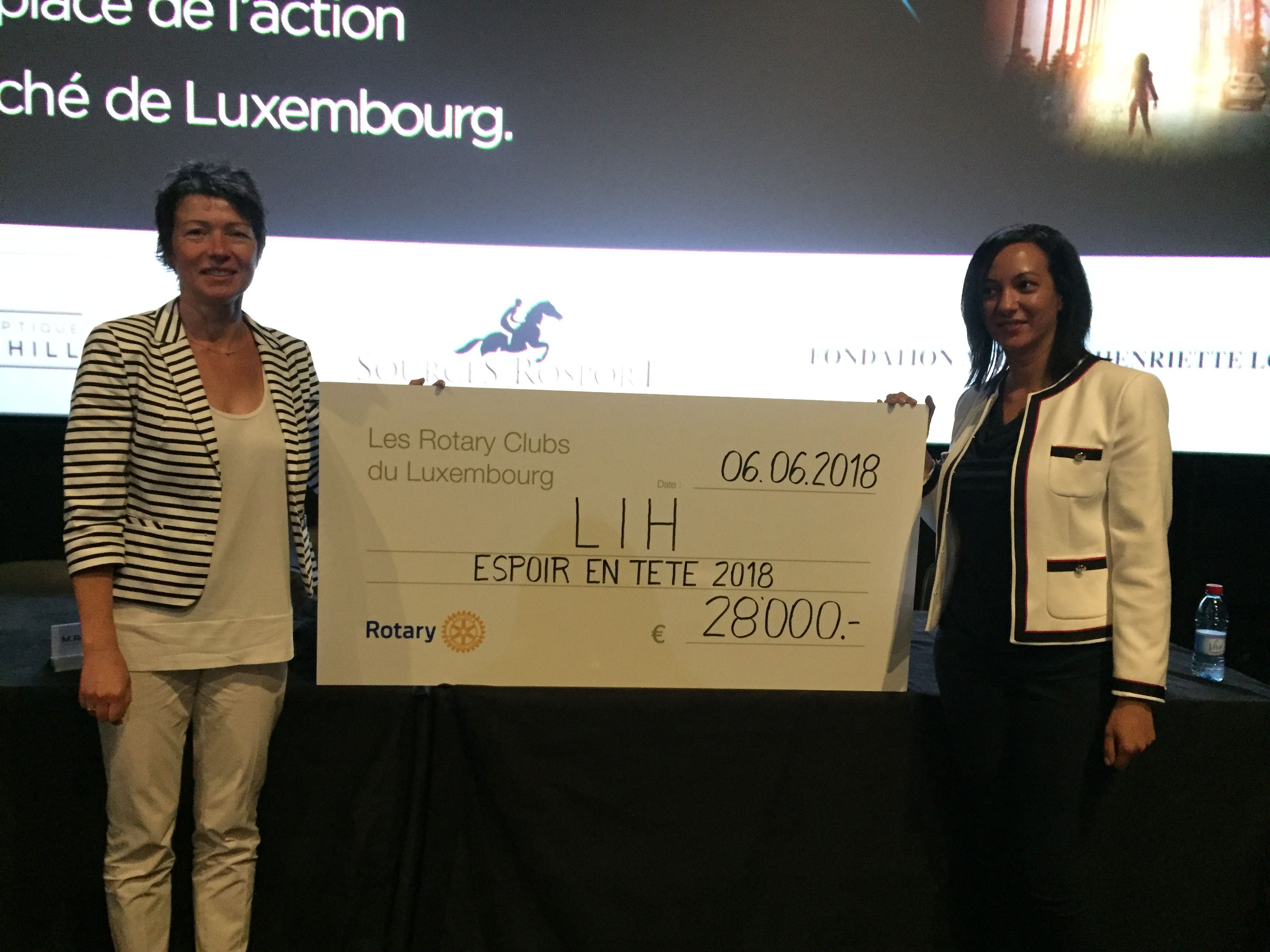For the sixth time, the Rotary Club Luxembourg gave donations for brain research in the framework of its initiative “Espoir-en-tête”. This year, 58,000 Euros were collected by organising movie sessions in cinemas to support two research projects, one of them submitted by Dr Sabrina Fritah from the NorLux Neuro-Oncology Laboratory at LIH’s Department of Oncology.
On 25th March 2018, a preview of the Disney film “A Wrinkle in Time” was displayed in two cinemas in Luxembourg attracting more than 3,500 spectators. The contributions from the entry tickets allowed to make a donation for two selected research projects. A reception was held at the Kinepolis cinema on 6th June to hand the cheques to the scientists who designed the projects.
Dr Sabrina Fritah’s project, funded with 28,000 Euros, is entitled “Reverting cancer driver mutations in gliomas”. It will investigate the therapeutic potential of targeting driver mutations in gliomas, severe brain tumours that are difficult to treat due to their cellular heterogeneity. A few driver mutations in epigenetic genes have been identified in adult and paediatric gliomas. These mutations lead to profound molecular changes including chromosomal rearrangements that can further increase the tumour’s heterogeneity. Therefore, the repairing of driver mutations is thought to be a promising approach in anticancer gene therapy.
Over the past years the NorLux Neuro-Oncology Laboratory led by Prof Simone Niclou has been developing specific glioma models, an expertise that makes it one of the leaders in the field of glioma research. Recently, the team also got experience in genome editing using various CRISPR-Cas9 applications. In the present project, Dr Fritah aims to use this revolutionising technique to correct point mutations in glioma patient-derived xenografts. Subsequently, they plan to monitor the impact of reverting these mutations on genome stability and glioma heterogeneity using high-throughput DNA sequencing.
‘We acknowledge the Rotary Club Luxembourg for this donation that will allow the acquirement of a new instrument for DNA visualisation and cover costs for deep sequencing of glioma specimens. We hope that our project will shed light on the impact of cancer driver gene editing on tumour epigenetic plasticity and pave the way for further developing the explored therapeutic strategy’, emphases project leader Dr Fritah.
The other research project supported by the Rotary Club Luxembourg is led by Dr Jean-Pierre Trezzi from IBBL - Integrated BioBank of Luxembourg and involves a collaboration with groups from the Luxembourg Centre for Systems Biomedicine at the University of Luxembourg. It aims at the identification of neurotoxins in faecal water to serve as biomarkers for an early diagnosis of Parkinson’s disease.


Prof Simone Niclou (left), Head of the NorLux Neuro-Oncology Laboratory at LIH's Department of Oncology, and Dr Sabrina Fritah (right), project leader.
